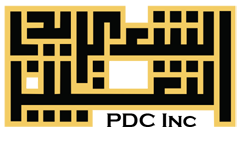
Lebanon’s Game of Chicken
U.S. officials in Lebanon currently support Lebanese Speaker of the Parliament Nabih Berri’s proposal for early legislative elections. U.S. support comes from fears of security risks stemming from the stagnation of Lebanon’s institutions, as parliament has failed for two years to elect a president. While members of parliament (MPs) continue to abstain from legislative sessions, denying quorum on a presidential vote, the two steadfast coalitions – March 8th and March 14th – have started to break.
After a deal failed at the end of last year to build momentum behind presidential candidate Suleiman Frangieh – leader of the Marada party and part of Hezbollah’s March 8th coalition – Hezbollah has since backed Free Patriotic Movement leader Michel Aoun, who is also a member of March 8th. With Saad Hariri’s Future Movement (Sunni) leading parties within March 14th in support of Frangieh, and with MPs from both coalitions contributing to the lack of quorum needed to cast the vote, both sides use the other’s absence as evidence of political malfeasance. From the U.S. perspective, ending the deadlock is matter of security. However, for Lebanon’s top politicians, the delay tactics constitute a game of political chicken. The winner gets to decide the future of Lebanon’s power structure.
Nabih Berri is the leader of the Shi’a Amal Movement, Hezbollah’s sectarian ally and member of the March 8th coalition. Calling for electoral reform last month, Berri refused to open a parliamentary session until joint-parliamentary committees were formed. On May 3rd, Lebanese MPs narrowed down reform for the electoral system to four proposals. The first three came from the Kata’eb (March 14th), Hezbollah, and the former Prime Minister Mikati (independent). Last, Berri’s proposal was combined with suggestions by parties in March 14th coalition, including: the Lebanese Forces, the Future Movement, and Walid Jumblatt’s (Druze) Progressive Socialist Party. This marks Amal’s clear departure from its previous alliance with Hezbollah.
Hezbollah’s strongest ally within the Maronite sect is the Free Patriotic Movement. It continues to abstain from parliamentary sessions. As of late May, MP Ibrahim Kanaan from Aoun’s Change and Reform bloc claimed that the Free Patriotic Movement was against the violation of the current power-sharing agreement, which divides the legislative evenly between Muslims and Christians, also alienating it from Hezbollah’s proposal. While Aoun’s rejection of electoral reform may be assessed as fear of losing demographic power in gerrymandered districts, one cannot dismiss Aoun’s interest in stalling government processes so to increase his leverage to become the next president. And Berri’s proposal to resume legislative elections must be judged in light of his interest to project productivity to the public, given the practice of instating party comrades into key positions within the government and practical status as the government.
Whether these proposals formulate the basis for new political alliances within Lebanon remains suspect. As quorum remains elusive, MPs from March 14th explain their lack of attendance as an objection to prioritizing electoral reform over a presidential vote. Furthermore, the coalitions behind presidential candidates do not parallel those of electoral reform. In the past few months, the leader of the Lebanese Forces, Samir Geagea, aligned with the Free Patriotic Movement and Hezbollah in supporting Aoun for president, which is a considerable break from their traditional alliance with March 14th. The other March 14th parties, Kata’eb and the Future Party support Frangieh, while the Progressive Socialist Party has backed an unlikely third-party candidate.
The delay tactics may also be indicative of the political uncertainty within Syria. Should the Syrian government re-consolidate power, Hezbollah’s interests would be further bolstered. Thus, the continuation of the conflict in Syria represents a time restraint – can a coalition be built before Hezbollah either loses a powerful ally or is further bolstered by one. The real question is, though, how long can Lebanese politicians continue driving the country toward the cliff?
